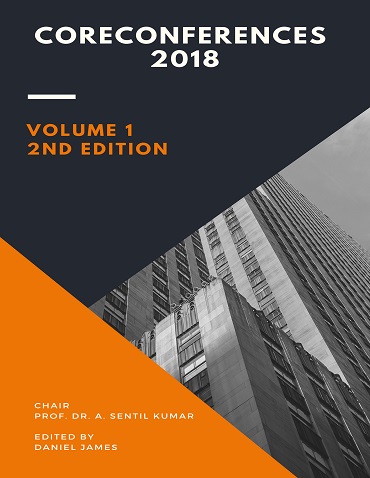- Publication Meta:Value
- Short Title:CC Batch A 2018
- Publisher:ASDF, India
- ISBN 13:978-81-933584-5-0
- ISBN 10:81-933584-5-7
- Language:English
- Type:Hard Bound - Printed Book
- Copyrights:CC Batch A Organizers/ DCRC, London, UK
- Editor-in-Chief:Dr A Senthilkumar
- Conference Dates:08 – 09, March 2018
- Venue Country:Holiday Inn Golden Mile, Hong Kong
- Submitted Papers:103
- Acceptance Rate:16.51%
- Website:www.coreconferences.com
Welcome to ASDF Electronic Digital Library!
CoreConferences 2018
CoreConferences 2018
International Conference on Education, Transportation and Disaster Management 2018
Paper 012
Introducing ACTOR as a Learning Framework - Merging Cultural Heritage Assessments with Risk Reduction and Disaster Recovery
Ann Kristina Bojsen1
1Associate Professor at the Bachelor's Degree Programme in Emergency and Risk Management, Metropolitan University College, Copenhagen, Denmark
Abstract
There is a general professional consensus that vulnerability and risk assessments are crucial tasks in any serious attempt to substantially reduce disaster losses and enhance the reconciliation or recovery in the post event phase. However, cultural heritage is often considered as an overarching element that should be assessed, rather than a permanent key component of the assessments. Research in disaster management noticeably illustrates how cultural heritage is increasingly at risk from disasters caused by natural and human-made hazards, as well as the effects of climate change. Still, disaster risk reduction interventions tend to overlook the importance of incorporating cultural heritage, as an independent and highly valuable component in order to increase the risk reduction. Furthermore, there is a lack of methodological expansion in order to merge disaster assessment and cultural heritage. These limitations serve as motivation for the introduction of the ACTOR framework (Assessing Cultural Threats, Obstacles and Resilience) ACTOR aims at merging cultural heritage assessments with risk reduction and disaster recovery, and provide disaster management students with a learning framework that considers how different impacts of cultural heritage affect disaster risk reduction, and how disasters and risk influence cultural heritage. The ambition of ACTOR is to outline a conceptual framework for cultural heritage in relation to disaster risk reduction interventions, and to introduce a methodological contribution to the field of disaster management education and training that places cultural heritage at the center of disaster risk reduction.
Keywords
Author's Profile
Author profile can be generated and linked through our partners World Book of Researchers. To include your profile online Click Here. After it is approved, please email to edlib @ asdf.res.in to create a link with all the papers.
e-AID
CoreConferences.2018.012
Cite this Article as Follows
Ann Kristina Bojsen. Introducing ACTOR as a Learning Framework - Merging Cultural Heritage Assessments with Risk Reduction and Disaster Recovery. International Conference on Education, Transportation and Disaster Management (2018): 44. Print.
© 2010 - by EDLIB .
All Rights Reserved.

